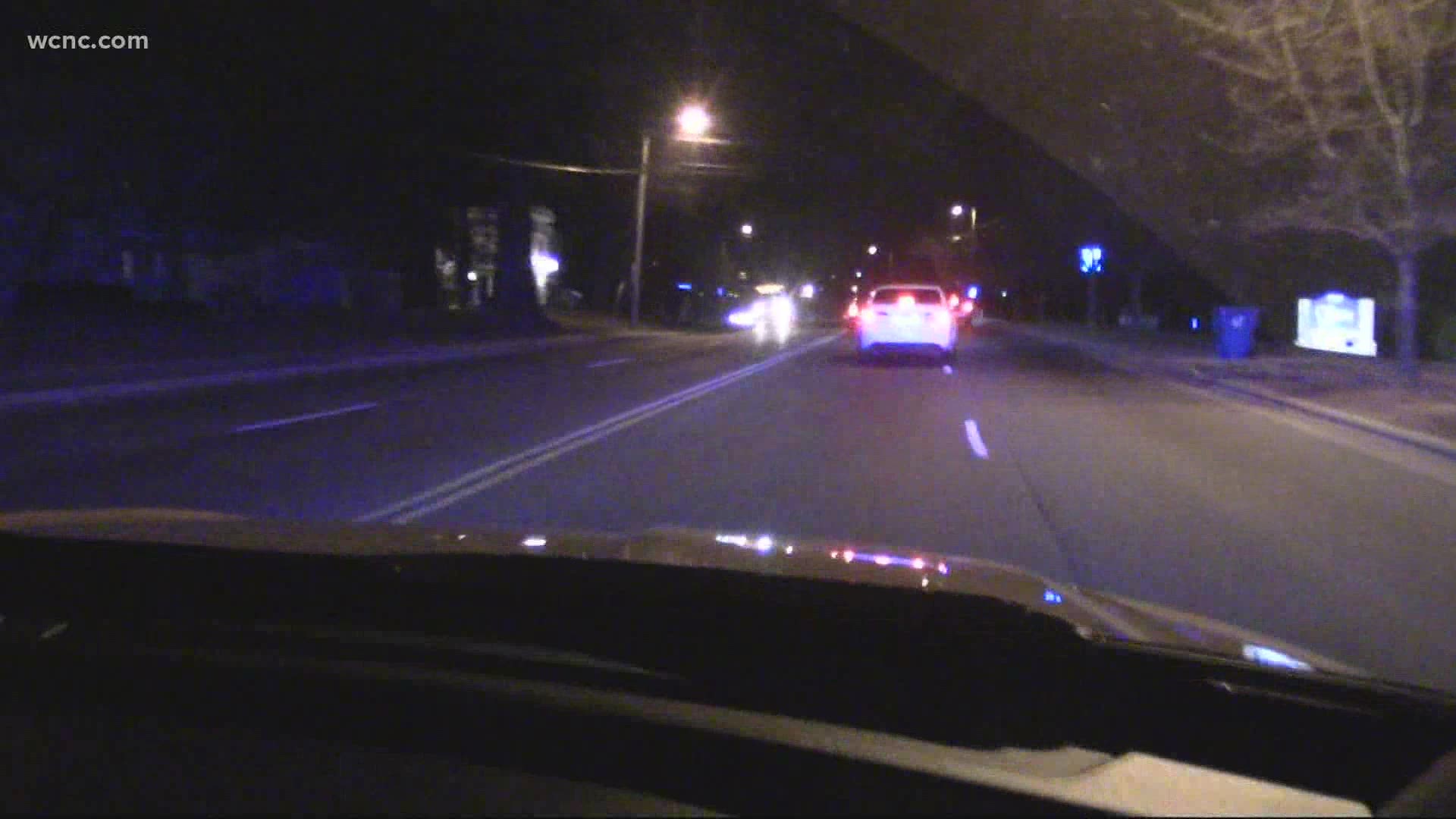CHARLOTTE, N.C. — The most recent traffic stop data show Charlotte-Mecklenburg police continue to stop, search and arrest black men far more often than their white counterparts.
A WCNC Charlotte analysis of CMPD traffic stop records from 2019 through May 2020 found the city's black population remains disproportionately impacted by policing.
"The complaints of activists across the country have a lot of merit," UNC Chapel Hill Political Science Professor Frank Baumgartner said. "They're not making this stuff up."
CMPD records show black men accounted for a third (33%) of all traffic stops, which was much higher than white men (22%). Of the black men stopped, police searched 10% of them compared to just 3% of the white men they pulled over, CMPD's data revealed. In addition, city records show black men made up 62% all people arrested during traffic stops, which was not even close to 18% of white men arrested.
In recent years, Baumgartner found similar disparities in Charlotte and elsewhere.
"It's like a broken record. Every time we look, we find the same thing," he said. "We have to ask ourselves is this pattern of behavior really making our communities safer and is it worth the price? I think the answer is there's got to be a better way."
Baumgartner said his analysis reveals police overuse traffic laws to stop people for minor offenses, which he said becomes a sort of "self-reinforcing prophecy."
"We're kind of making criminals by increasing contacts," he said. "Don't try to use the excuse of a traffic stop to go on a fishing expedition."
CMPD data show the most common reason officers pull over black men is for vehicle regulatory issues like no registration or no license, while the most common reason for white men is speeding.
"It's a waste of public resources and furthermore it alienates members of our community and we're seeing this level of alienation and in some cases hatred of police, because of a feeling of unfairness," Baumgartner said. "If you limit the use of the vehicle code and the traffic code to keeping the road safe, we'll all be better."
Baumgartner sat on a panel alongside Chief Kerr Putney in 2018. At the time, the chief acknowledged the general disparity and said since black members of the community account for most of Charlotte's crime victims, more police resources are dedicated to traditionally black neighborhoods.
"We're trying to figure out the why and then the what next," Chief Putney said during the panel discussion.
Wake Forest University Law Professor Kami Chavis believes the data should prompt action.
"I think this data is incredibly important," she said. "We need to begin to minimize contact between law enforcement officers and minority communities."
In a statement, CMPD said the department has taken steps to minimize random profiling, including requiring officers to report data for every stop, creating a system for people to file racial-profiling complaints, requiring the use and review of body cameras and re-instituting warning citations for equipment and regulatory violations, which allow drivers 30 days to resolve a problem without a ticket or arrest.
"Traffic stops are often are part of a broader crime-fighting strategy in neighborhoods that have a statistically higher victimization rate," Rob Tufano said. "Statistically, violent crime victimization is higher in our African-American communities and frequently the communities that need police response. The department has a responsibility to ensure that community members are safe and that we're doing everything we can to protect them. Community members expect police to enforce quality of life, traffic and crime issues. We owe it to those community members to not only listen, but to understand how they'd like us to serve them."
Steps taken by CMPD to minimize "the opportunity for arbitrary profiling:"
- Stop Data Report: Officers are required to report all vehicle stops, the circumstances involving the stop, race, gender and name of the motorist. Additionally, a detailed search report will be completed if officers search the car, a driver or passenger. This reporting data system allows the CMPD to ensure officers are not arbitrarily stopping specific members of our community.
- Implemented Arbitrary Profiling Complaint System- Made it possible for residents to file racial-profiling complaints against an officer. Those complaints allow the CMPD to identify troubling trends. These complaints are investigated by Internal Affairs.
- Body Worn Cameras- All CMPD officers below the rank of Deputy Chief and who do not work in an undercover capacity are equipped with body-worn cameras.
o Officers are required to record vehicle stops with their body-worn cameras.
o Approximately 1000 videos are randomly reviewed every month- 12000 a year to ensure officers are adhering to department policy.
o Professional Standard Bureau conducts a 2nd Tier audit of BWC videos. They primarily focus on videos associated with felony arrests, discretionary arrests, and consent searches.
- Warning Citations- The CMPD reinstituted the use of warning tickets for equipment and regulatory violations.
- Equipment and Regulatory Violations account for approximately 45% of car stops involving African-Americans last year.
- Warning Citations allow the driver thirty days to resolve issue for regulatory violations.

